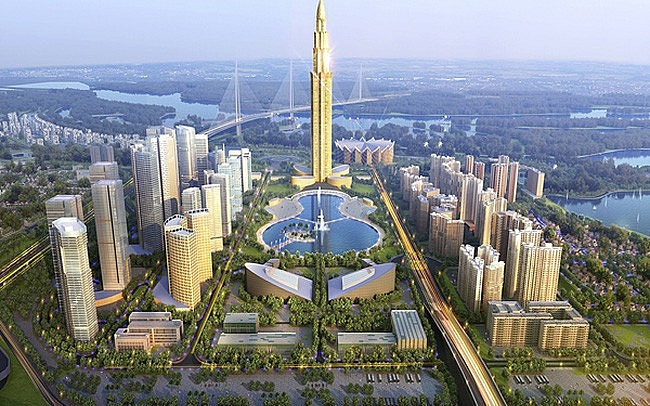Vietnam needs improvements to keep popularity among investors
 |
| Vietnam needs to attract FDI projects of larger size and stature |
Vietnam says “NO” to mini FDI projects
While foreign direct investment (FDI) flows registered in Vietnam are stable, the scale of many projects is too small. According to a report of the Foreign Investment Agency (FIA) under the Ministry of Planning and Investment, in the first nine months, although newly registered investment reached $14.12 billion, equal to 97 per cent of the same period last year, the number of new projects increased by nearly 20 per cent. This means that on average, new foreing-invested projects have a smaller scale.
The smart city project in Hanoi—one of the foreign-invested projects registered in the first nine months—accounts for more than $4 billion of the total newly registered investment. This means that the size of the rest of the new projects is even smaller than the overall average.
It is not the first time that the concern about attracting the small-scale foreign-invested projects have been mentioned.
Professor Nguyen Mai, chairman of the Vietnam’s Association of Foreign Invested Enterprises (VAFIE), thinks that it is necessary to review and evaluate the structure of small-scale projects to know which field they belong to.
For service projects, small scale is understandable. “Even so, we still need to consider whether we should attract such foreign-invested projects in the context of the Fourth Industrial Revolution,” said Mai.
In fact, when summarising 25 years of FDI, the MPI thought about setting a minimum level of capital for foreign-invested projects, an initiative which received support from locality and sector leaders.
Although it is not absolutely correct to say that small-scale projects are inefficient and unnecessary, if there are too many projects having investment capital under $1 million, we still need careful consideration, especially as Vietnam is moving towards attracting investment into hi-tech and projects that can have strong impact on improving socioeconomic development.
Therefore, Mai said that we need to seriously consider and maybe say “no” to small-scale projects and give a chance to domestic companies instead.
Relieving competitive pressure
Besides the existing achievements, the MPI is still concerned about the effectiveness in attracting FDI in the upcoming time. “The world economy is laden with risks, with and competition to attract foreign investment becoming more intense against emerging markets like Myanmar or Indonesia, which will make it more difficult to increase FDI in the coming years,” the report of the MPI noted.
| For service projects, small scale is understandable. Even so, we still need to consider whether we should attract similar FDI projects in the context of the Fourth Industrial Revolution. |
Despite of existing competitive pressures, Mai still thinks that there is nothing to be pessimistic about. “I bet that not only in 2019 and 2020, even years later, FDI will maintain its growth rate.”
His optimism is rooted in Vietnam’s popularity thanks to its reform efforts.
Bjön Koslowski, DIHK International Service Co., Ltd., the delegate of German Industry and Commerce in Vietnam (AHK Vietnam) said that lots of German companies are considering moving supply to Vietnam due to increasing labour costs in China as well as the need to diversify their supply chains.
Vietnam is becoming an investment spotlight thanks to the combination of low labour costs, diversified free trade agreement (FTAs), favourable geographical location, and open economy.
Chris Argent, PepsiCo’s senior director, public policy, government affairs, and communication, said at the World Economy Forum on ASEAN 2018 held in Hanoi last month that Vietnam is one of PepsiCo’s 20 priority markets across the globe and is the eighth in the Asia-Middle East-North Africa region. “We are focusing on expanding our food and beverage trade through continued investments,” he stressed.
To attract FDI more effectively, the MPI plans that departments at all level will intensify inspections and the supervision of the licensing process and the management of FDI foreign-ivnested projects, and reorganise licensing and post-licensing management.
Besides, disbursement will be quicker, projects with outdated technology will not be licensed, and projects that use large land areas will be scrutinised, investment rate and the land area will be considered. In addition, the policy dialogue with the business community need to be strengthened to remove difficulties for investors investing in Vietnam so that they can operate effectively.
Although detailed information has not been published yet, Vu Dai Thang, Deputy Minister of Planning and Investment, revealed that FDI attraction may hit a new peak in October when a series of large-scale projects are granted the investment certificates at the conference on reviewing 30 years of FDI attraction in Hanoi on October 4.
What the stars mean:
★ Poor ★ ★ Promising ★★★ Good ★★★★ Very good ★★★★★ Exceptional
Related Contents
Latest News
More News
- Interest in renewables drives foreign investment surge (October 10, 2018 | 15:21)
- Bac Giang: building firm FDI foundations of industry and tourism (October 10, 2018 | 13:09)
- Vietnam’s way ahead in foreign investment and economic growth (October 10, 2018 | 11:17)
- FDI into real estate through the roof in Ho Chi Minh City (October 08, 2018 | 12:37)
- Directing FDI into large transport infrastructure projects (October 08, 2018 | 12:34)
- ESMO factory granted investment certificate (October 04, 2018 | 17:23)
- VIR awarded merits and medal for outstanding achievements in FDI attraction (October 04, 2018 | 15:36)
- Hong Kong FTA to boost investment (October 04, 2018 | 14:00)
- FDI gives wings to the banking sector (October 04, 2018 | 14:00)
- Numerous billion-dollar projects licensed at FDI conference (October 04, 2018 | 14:00)

 Tag:
Tag:


























 Mobile Version
Mobile Version